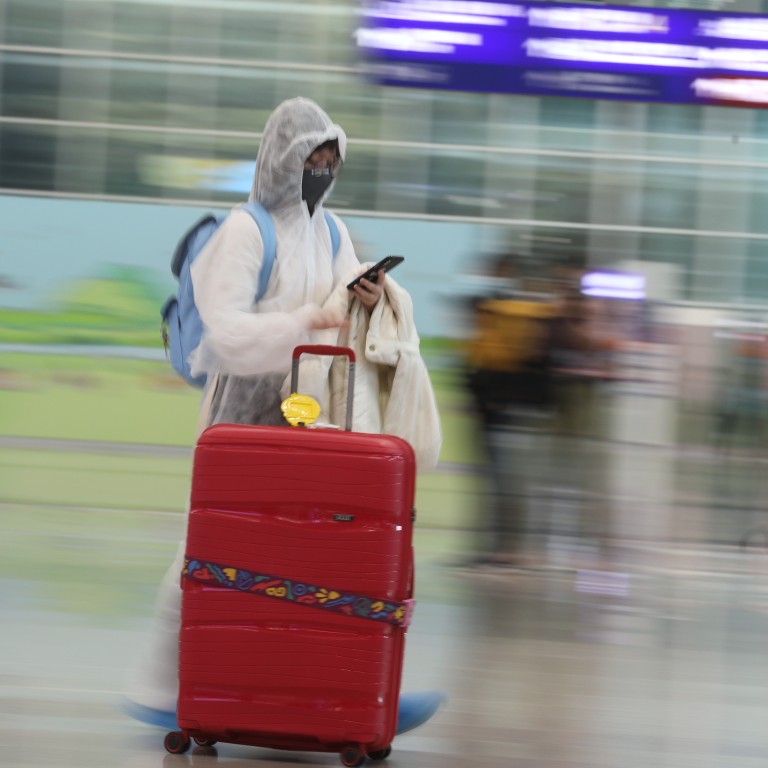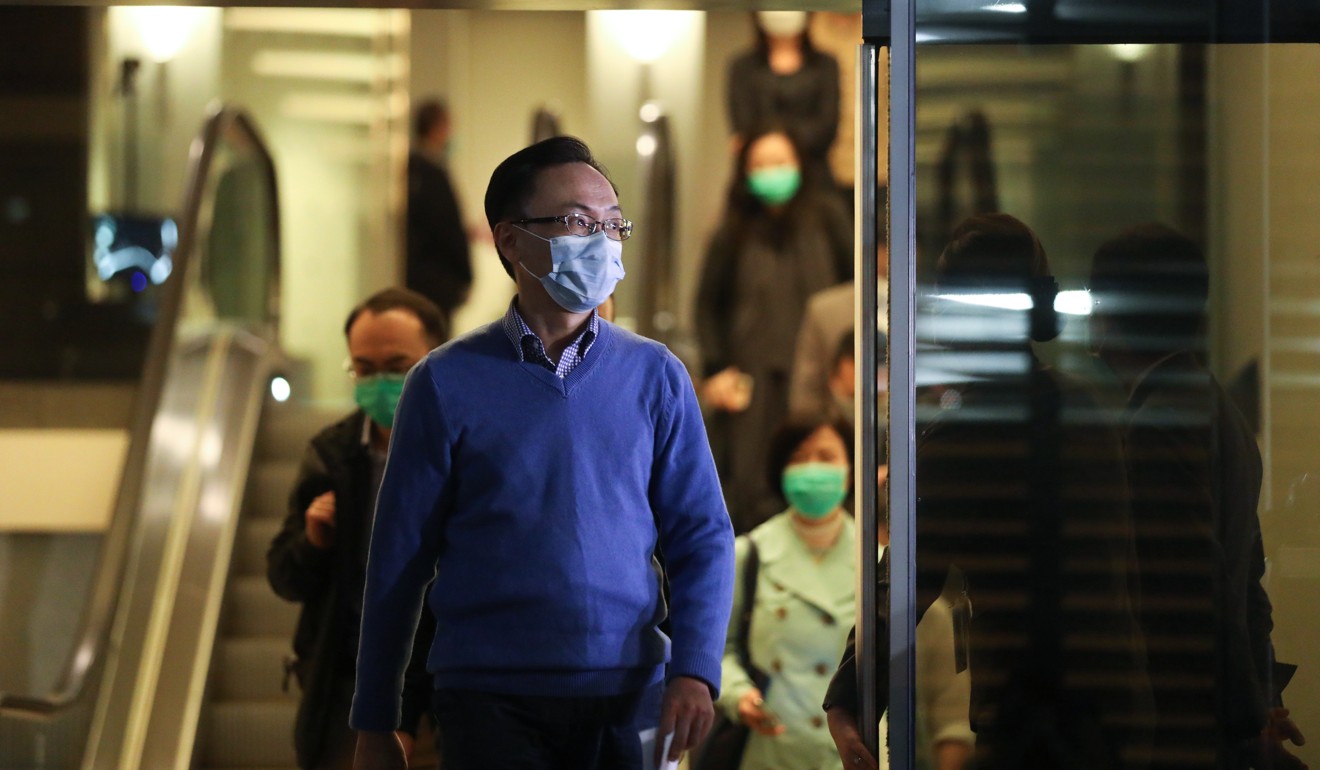
Coronavirus: officials defend Hong Kong’s home-quarantine measures as experts warn more must be done to contain spread of epidemic
- Mainland China visitors and returnees are not required to wear tracking wristbands or undergo sampling virus tests like those returning from overseas
- Government flew home 558 Hongkongers who had been stranded in Hubei province on Wednesday and Thursday
Appeals for more stringent procedures came as immigration figures revealed that the average daily number of non-residents crossing into the city through the two remaining land border checkpoints with the mainland more than doubled from 121 in February to 268 this month.
Mainland visitors and returnees are not required to wear tracking wristbands or undergo sampling virus tests like those returning from overseas, and just need to report their real-time location via the messaging apps WhatsApp or WeChat while undergoing 14 days of quarantine.
On top of these concerns, the government also flew home 558 Hongkongers who had been stranded in Hubei province on Wednesday and Thursday. However, they did not stay in the provincial capital Wuhan, the original epicentre of the Covid-19 outbreak.
Speaking at Hong Kong airport on Thursday night, Secretary for Constitutional and Mainland Affairs Patrick Nip Tak-kuen defended the government’s policies.
“It is always safest if we put up the most stringent measures … but our resources and capacity are limited, so we have to focus our energy on handling the group with the highest risks,” Nip said, referring to overseas arrivals.

He added that wristbands were not comprehensive monitoring devices and anyone who violated quarantine orders had to face penalties.
Earlier, Undersecretary for Food and Health Dr Chui Tak-yi said that returnees from Hubei were not required to undergo virus tests or be monitored by wristbands because the risk of infection from them was lower than from those returning from overseas.
Coronavirus latest: 21,000 dead as UN warns of ‘threat to humanity’
He said that the number of new confirmed coronavirus cases in Hubei dropped significantly to double digits from early March, and that only one of about 400 Hong Kong residents who had returned from Wuhan was infected.
“Even if they do not need to wear electronic wristbands, we can still check whether they are quarantined at home by asking them to share their locations on the phone,” he said, without responding to a query on whether the government was short of wristbands and test kits.
But infectious disease expert Dr Joseph Tsang Kay-yan said the quarantine measures were inadequate for those coming from the mainland, especially Hubei.
“Most cases in Hong Kong are imported and we have to contain them at source, no matter if they are from Europe, the US or mainland China,” Tsang said. “I don’t understand why the standards are different.”
He said those returning from Hubei should be tested for the virus and wear wristbands to increase the deterrent effect.
“A place is considered safe only if there are no new cases for 28 days. There was an asymptomatic case in Wuhan who spread the virus to a doctor recently,” he added. “There are risks they caught the virus on the flight as well.”
Unlike Hong Kong, the mainland excludes asymptomatic cases in its reporting system.
Hong Kong recorded 43 new cases of the coronavirus on Thursday, raising the total to 453.
IT experts were concerned that home-quarantine monitoring based on the real-time location service on mobile apps such as WhatsApp and WeChat could have loopholes.
“The real-time location error can range from 10 metres to 100 metres if the mobile phone user is at home or inside a building,” said Francis Fong Po-kiu, honorary chairman of the Hong Kong Information Technology Federation, “because the satellite signal for GPS is weak in indoor areas”.
Information security specialist Young Wo-sang agreed. “It’s possible the person cannot be detected when moving from a block to one nearby as buildings in Hong Kong are very condensed.”
Both Fong and Young said new Bluetooth wristbands the government issued to overseas arrivals could better monitor the location of the user.
“The Bluetooth wristband can lock the mobile phone with the user,” Fong said, adding the app, which was originally meant for indoor navigation, collected nearby signals from Wi-fi, mobile phones, Bluetooth and the Earth’s magnetic field. “So it’s easier to detect when the wearer changes environment.”
Pro-establishment lawmaker Michael Tien Puk-sun said that using a mobile phone’s real-time location sharing for quarantine monitoring was ridiculous.
“Wearing wristbands is the only way [to monitor people],” Tien said. “If it’s just real-time location sharing, people can leave their phones at home and walk about on the streets.”
The government had earlier said mainland residents using Android phones without Google Play would have difficulty installing the tracking app needed for the wristbands.
But Eric Fan Kin-man, vice-president of the trade association Hong Kong Information Technology, believed that this might take up much more time when crossing the border.
Purchase the China AI Report 2020 brought to you by SCMP Research and enjoy a 20% discount (original price US$400). This 60-page all new intelligence report gives you first-hand insights and analysis into the latest industry developments and intelligence about China AI. Get exclusive access to our webinars for continuous learning, and interact with China AI executives in live Q&A. Offer valid until 31 March 2020.


